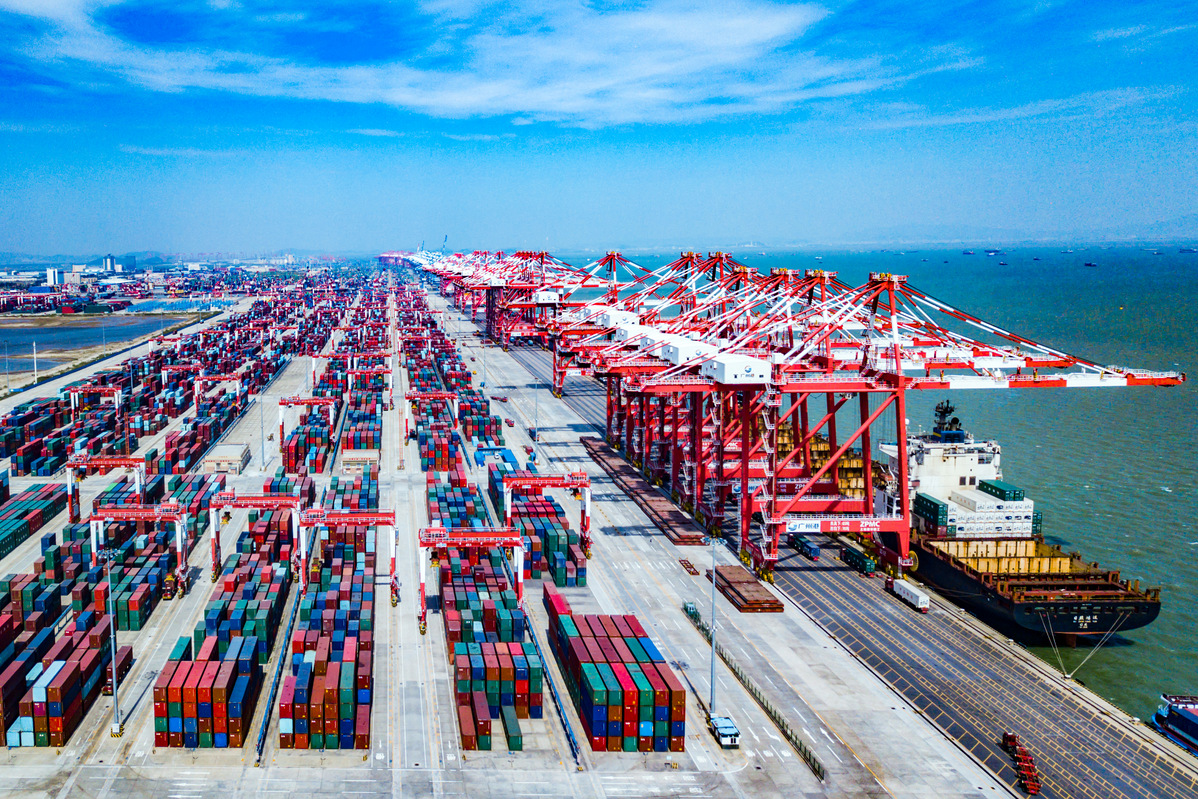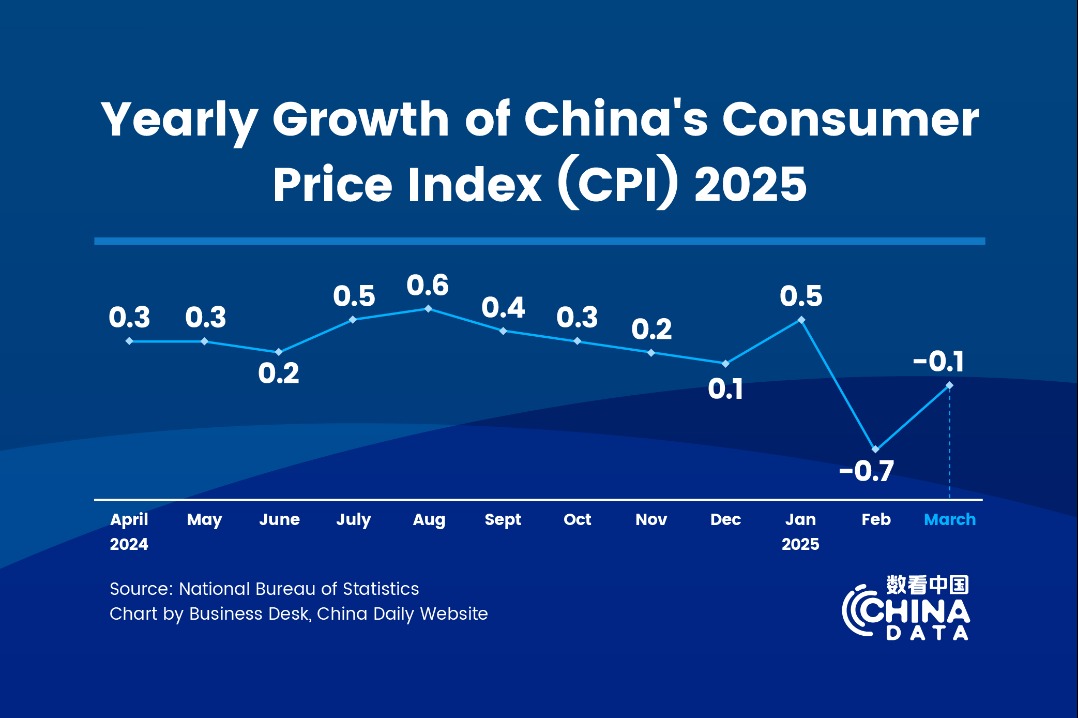Additional duties on US goods raised to 125%
Market: Openness, stability and growth source of attraction


China has responded to United States' "reciprocal tariffs" by raising its additional tariffs on US goods from 84 percent to 125 percent, effective Saturday, according to an online notice issued by the Customs Tariff Commission of the State Council, China's Cabinet, on Friday.
Beijing's latest countermeasures followed the US move to raise the "reciprocal tariffs" on Chinese imports to 125 percent on Thursday.
The commission said that, given that current tariff levels have rendered US exports to China commercially unviable, China will no longer respond to any additional tariff increases the US may impose on Chinese goods.
A spokesperson from the Ministry of Commerce said if the US continues to play its tariff numbers game, China will not respond. However, if the US insists on taking actions that infringe upon China's legitimate interests, China will resolutely counter and will not hesitate to fight to the end.
China has noted that, under pressure from China and other parties, the US has temporarily delayed the imposition of excessive "reciprocal tariffs" on certain trading partners, said the ministry official in a statement.
"However, this represents little more than a symbolic gesture and does not alter the fundamental nature of the US approach — leveraging trade coercion to pursue its own interests," said the spokesperson, adding the US' repeated imposition of tariffs on Chinese goods has devolved into a numbers game.
Since taking office in late January, US President Donald Trump has repeatedly imposed additional tariffs on China, along with "reciprocal tariffs" targeting many economies. These actions have caused significant disruptions to global trade and triggered strong responses from governments around the world.
Despite ongoing challenges, China will remain a compelling market for US companies. About half of the American Chamber of Commerce in China's member companies still rank China among their top three investment destinations, said Michael Hart, president of AmCham China.
With its strong focus on innovation, electric mobility and biotech, Hart said China will remain a key market for US companies.
In addition to expanding pilot programs for opening up in areas including telecommunications, healthcare and education, China will advance reforms to improve the mechanisms for promoting foreign investment and systematically enhance the management and facilitation of such investment, the National Development and Reform Commission said in a statement on Friday.
Sherri He, managing director for China at the US-based management counseling firm Kearney, said that China's vast domestic market has always been a perceived strength for foreign investment.
"With the current global economic uncertainty intensifying, China's market is expected to become a stabilizer of global business confidence, with its steady economic performance, business environment, and technology and innovative capabilities," said He.
Aligning with that stance, Henry Ding, president for China at US industrial conglomerate 3M, said that China's pursuit of high-quality development presents significant opportunities for multinational companies like 3M. Investment in sectors such as automotive, energy and electronics all represent key growth areas for 3M.
"We will continue to invest and expand our presence in the Chinese market," said Ding.
Noting that China's growing focus on boosting domestic consumption will offer global businesses greater confidence, Joanne Crevoiserat, CEO of Tapestry Inc, a New York-headquartered luxury goods group, said that China is her company's largest market outside the US, and it is a major source of inspiration globally for its brands such as Coach and Kate Spade. She added that the company is on track to achieve its goal of opening 100 new stores in China between 2022 and 2025, and that milestone is expected to be reached by the end of this year.
Leaders of AmCham China said in a communication to the chamber's members this week that they believe US companies, as well as the US, China and their citizens, have all benefited from cross-border trade. While they continue to advocate for improved terms and conditions, they warned that sweeping tariffs will cause more harm than good.
The chamber said as many of its members are deeply integrated into both the US and Chinese markets, they have consistently urged restraint and called on both governments to find constructive solutions.
Reflecting growing concern within the US business community, foreign media reported earlier this week that the Washington-based United States Chamber of Commerce may sue the Trump administration to stop its sweeping tariffs, citing the potential for severe economic harm to both the US and the global economy.
While the US government's turn toward economic nationalism is expected to have enduring consequences, the steady rise of a multipolar world order presents a crucial opportunity to reform and revitalize the multilateral trading system, said Wang Huiyao, president of the Beijing-based Center for China and Globalization.
China's increasingly open stance and firm commitment to multilateralism will play a greater role in attracting global capital and advancing international economic cooperation, said Wang.




































